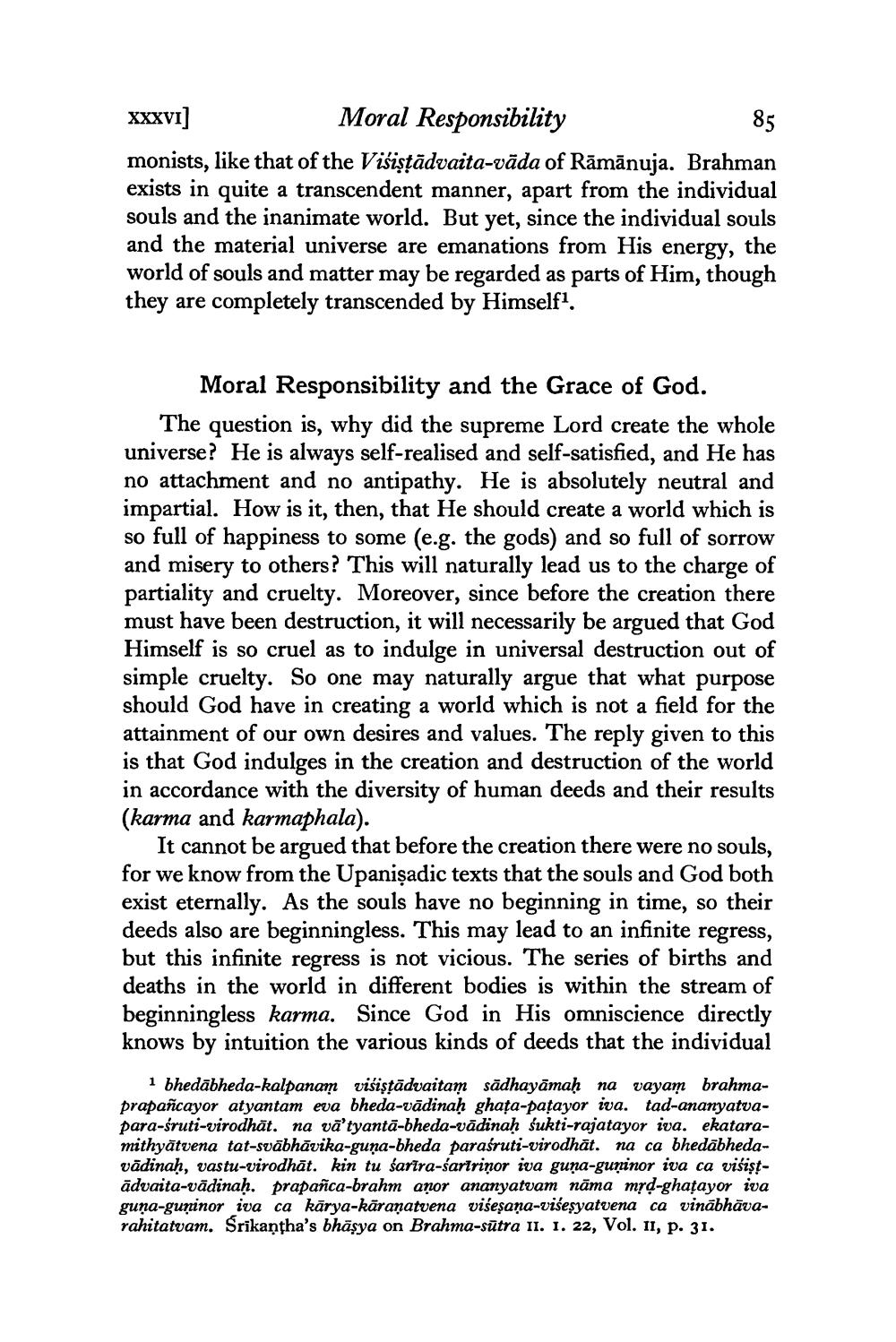________________
85
XXXVI]
Moral Responsibility monists, like that of the Višistādvaita-vāda of Rāmānuja. Brahman exists in quite a transcendent manner, apart from the individual souls and the inanimate world. But yet, since the individual souls and the material universe are emanations from His energy, the world of souls and matter may be regarded as parts of Him, though they are completely transcended by Himself1.
Moral Responsibility and the Grace of God. The question is, why did the supreme Lord create the whole universe? He is always self-realised and self-satisfied, and He has no attachment and no antipathy. He is absolutely neutral and impartial. How is it, then, that He should create a world which is so full of happiness to some (e.g. the gods) and so full of sorrow and misery to others? This will naturally lead us to the charge of partiality and cruelty. Moreover, since before the creation there must have been destruction, it will necessarily be argued that God Himself is so cruel as to indulge in universal destruction out of simple cruelty. So one may naturally argue that what purpose should God have in creating a world which is not a field for the attainment of our own desires and values. The reply given to this is that God indulges in the creation and destruction of the world in accordance with the diversity of human deeds and their results (karma and karmaphala).
It cannot be argued that before the creation there were no souls, for we know from the Upanișadic texts that the souls and God both exist eternally. As the souls have no beginning in time, so their deeds also are beginningless. This may lead to an infinite regress, but this infinite regress is not vicious. The series of births and deaths in the world in different bodies is within the stream of beginningless karma. Since God in His omniscience directly knows y intuition the various kinds of deeds that the individual
1 bhedābheda-kalpanam višistādvaitam sādhayāmaḥ na vayam brahmaprapancayor atyantam eva bheda-vādinah ghața-patayor iva. tad-ananyatvapara-śruti-virodhāt. na vā'tyantā-bheda-vādinaḥ śukti-rajatayor iva. ekataramithyātvena tat-svābhāvika-guna-bheda paraśruti-virodhāt. na ca bhedābhedavādinah, vastu-virodhāt. kin tu sarira-saririnor iva guna-guninor iva ca višiştādvaita-vādinaḥ, prapanca-brahm anor ananyatvam nāma mrd-ghațayor iva guna-guninor iva ca kārya-kāraṇatvena višeşaņa-višesyatvena ca vinābhāvarahitatvam. Srikantha's bhāsya on Brahma-sūtra II. 1. 22, Vol. II, p. 31.




